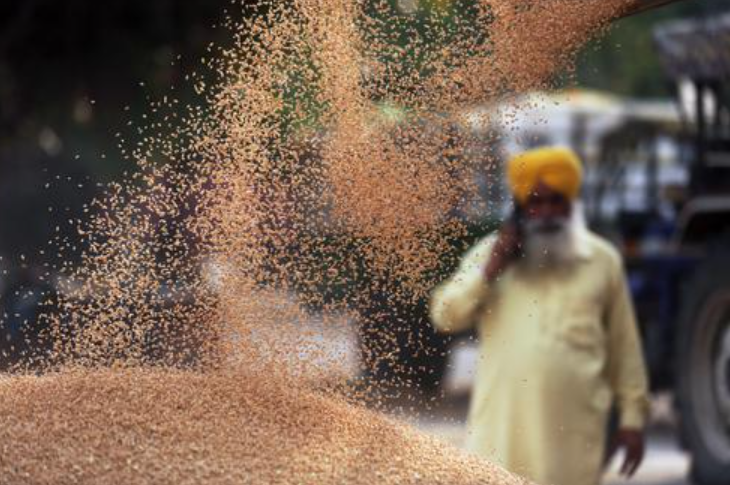India bans wheat exports due to food security threats. In addition to India, many countries around the world have turned to food protectionism since the Russian army invaded Ukraine, including Indonesia, which banned the export of palm oil at the end of last month. Experts warn that countries block food exports, which may further increase inflation and famine.
India, the world’s second-biggest wheat producer, had been counting on India to make up the shortfall in wheat supplies since the outbreak of the Russian-Ukrainian war in February led to a sharp drop in wheat exports from the Black Sea region.
Earlier this week, India also set a record export target for the new fiscal year and said it would send trade missions to countries including Morocco, Tunisia, Indonesia and the Philippines to explore ways to further increase shipments.
However, a sudden and sharp rise in temperature in India in mid-March affected local harvests. A dealer in New Delhi said India’s crop output may fall short of the government’s forecast of 111,132 tonnes, and only 100 million metric tonnes or less.
India’s decision to ban wheat exports highlights India’s concerns about high inflation and exacerbated trade protectionism since the beginning of the Russian-Ukrainian war to ensure domestic food supplies. Serbia and Kazakhstan have also imposed quotas on grain exports.
The U.S. Department of Agriculture reported that Kazakh domestic wheat and flour prices soared by more than 30% since the Russian army invaded Ukraine, restricting related exports until next month 15 on the grounds of food security; Serbia also imposed quotas on grain exports. The Financial Times reported last Tuesday that Russia and Ukraine temporarily restricted the export of sunflower oil, and Indonesia banned the export of palm oil at the end of last month, affecting more than 40% of the international vegetable oil market. IFPRI warns that 17% of the world’s export-restricted food is currently traded in calories, reaching the level of the 2007-2008 food and energy crisis.
At present, only about 33 countries in the world can achieve food self-sufficiency, that is, most countries rely on food imports. According to the 2022 Global Food Crisis Report released by the Food and Agriculture Organization of the United Nations, about 193 million people in 53 countries or regions will experience a food crisis or further deterioration of food insecurity in 2021, a record high.
Post time: May-18-2022

